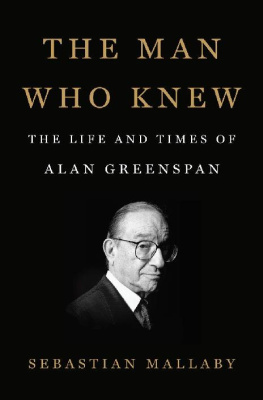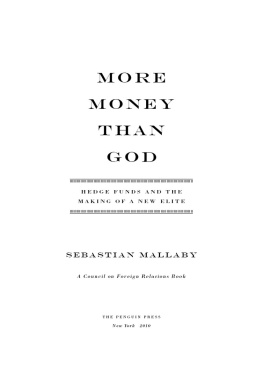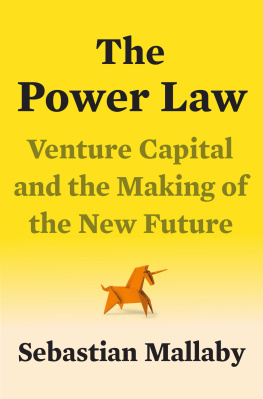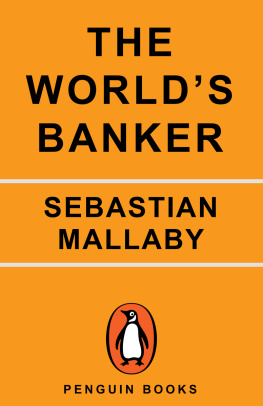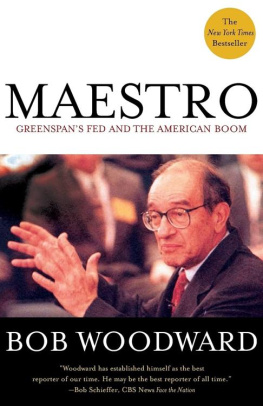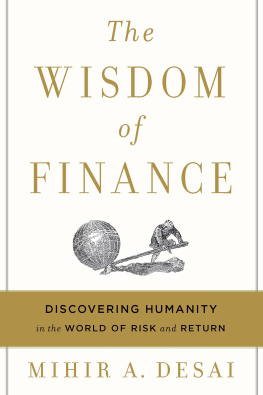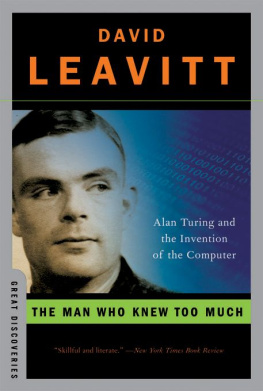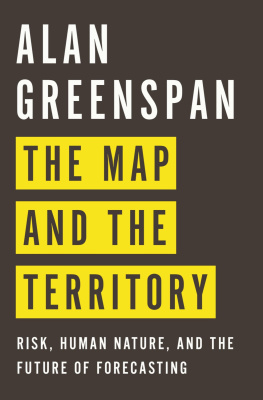Sebastian Mallaby - The Man Who Knew: The Life and Times of Alan Greenspan
Here you can read online Sebastian Mallaby - The Man Who Knew: The Life and Times of Alan Greenspan full text of the book (entire story) in english for free. Download pdf and epub, get meaning, cover and reviews about this ebook. year: 2016, publisher: Penguin Press, genre: Detective and thriller. Description of the work, (preface) as well as reviews are available. Best literature library LitArk.com created for fans of good reading and offers a wide selection of genres:
Romance novel
Science fiction
Adventure
Detective
Science
History
Home and family
Prose
Art
Politics
Computer
Non-fiction
Religion
Business
Children
Humor
Choose a favorite category and find really read worthwhile books. Enjoy immersion in the world of imagination, feel the emotions of the characters or learn something new for yourself, make an fascinating discovery.
- Book:The Man Who Knew: The Life and Times of Alan Greenspan
- Author:
- Publisher:Penguin Press
- Genre:
- Year:2016
- Rating:5 / 5
- Favourites:Add to favourites
- Your mark:
- 100
- 1
- 2
- 3
- 4
- 5
The Man Who Knew: The Life and Times of Alan Greenspan: summary, description and annotation
We offer to read an annotation, description, summary or preface (depends on what the author of the book "The Man Who Knew: The Life and Times of Alan Greenspan" wrote himself). If you haven't found the necessary information about the book — write in the comments, we will try to find it.
The Man Who Knew: The Life and Times of Alan Greenspan — read online for free the complete book (whole text) full work
Below is the text of the book, divided by pages. System saving the place of the last page read, allows you to conveniently read the book "The Man Who Knew: The Life and Times of Alan Greenspan" online for free, without having to search again every time where you left off. Put a bookmark, and you can go to the page where you finished reading at any time.
Font size:
Interval:
Bookmark:
More Money Than God
The Worlds Banker
After Apartheid

PENGUIN PRESS
An imprint of Penguin Random House LLC
375 Hudson Street
New York, New York 10014
penguin.com
Copyright 2016 by Sebastian Mallaby
Penguin supports copyright. Copyright fuels creativity, encourages diverse voices, promotes free speech, and creates a vibrant culture. Thank you for buying an authorized edition of this book and for complying with copyright laws by not reproducing, scanning, or distributing any part of it in any form without permission. You are supporting writers and allowing Penguin to continue to publish books for every reader.
The Council on Foreign Relations (CFR) is an independent, nonpartisan membership organization, think tank, and publisher dedicated to being a resource for its members, government officials, business executives, journalists, educators and students, civic and religious leaders, and other interested citizens in order to help them better understand the world and the foreign policy choices facing the United States and other countries. Founded in 1921, CFR carries out its mission by maintaining a diverse membership, with special programs to promote interest and develop expertise in the next generation of foreign policy leaders; convening meetings at its headquarters in New York and in Washington, D.C., and other cities where senior government officials, members of Congress, global leaders, and prominent thinkers come together with CFR members to discuss and debate major international issues; supporting a studies program that fosters independent research, enabling CFR scholars to produce articles, reports, and books and hold roundtables that analyze foreign policy issues and make concrete policy recommendations; publishing Foreign Affairs, the preeminent journal on international affairs and U.S. foreign policy; sponsoring Independent Task Forces that produce reports with both findings and policy prescriptions on the most important foreign policy topics; and providing up-to-date information and analysis about world events and American foreign policy on its website, www.cfr.org.
The Council on Foreign Relations takes no institutional positions on policy issues and has no affiliation with the U.S. government. All views expressed in its publications and on its website are the sole responsibility of the author or authors.
.
LIBRARY OF CONGRES S CATALOGING - IN - PUBL ICATION DATA
Names: Mallaby, Sebastian, author.
Title: The Man Who Knew: The Life and Times of Alan Greenspan / Sebastian Mallaby.
Description: New York: Penguin Press, 2016. | A Council on Foreign Relations Book.
Identifiers: LCCN 2016017300 (print) | LCCN 2016028520 (ebook) |
ISBN 9781594204845 (hardcover) | ISBN 9780698170018 (ebook)
Subjects: LCSH: Greenspan, Alan, 1926 | EconomistsUnited StatesBiography. | Government economistsUnited StatesBiography. |
Monetary policyUnited States. | Board of Governors of the Federal Reserve System (U.S.)
Classification: LCC HB119.G74 M35 2016 (print) | LCC HB119.G74 (ebook) | DDC 332.1/1092 [B] dc23
LC record available at https://lccn.loc.gov/2016017300
Version_1
T his book is based on almost unlimited access to Alan Greenspan, his papers, and his colleagues and friends, all of whom were generous in their collaboration. For a period of five years, starting in the autumn of 2010, I was a familiar visitor to Greenspans offices in Washington, D.C., and saw him in other contexts, too: at home, hosting a dinner for a former British prime minister; at his suite in the Ritz on New Yorks Central Park South, where the staff welcomed him with a model of the Federal Reserve building made out of chocolate; on the Acela train between his two home cities, where he tipped the porters generously, proclaiming a belief in redistribution. At some point in this process, after we had logged more than seventy hours of recorded conversations, I stopped counting the time. The intriguing bits seemed to come at the least expected moments, and they were not always when the recorder was running. Once, after Greenspan had mentioned his love of automobiles, and particularly their ability to lift his mood from a dark patch, I sent a note over to his office, wondering how seriously he had meant this. Later that day, Greenspan replied:
Dear Sebastian,
In 1959 I bought a Buick convertible with tail fins and red leather seats. It did cheer me up driving on highways with J.S. Bach loudly pouring out of my car radio speakers. I do not recall being depressed prior to the purchase, however.
Best,
Alan
I looked around for a photo that matched Greenspans description, and sent it over to him. Greenspans assistant relayed his answer:
AG said this is his car! But his was red interior with black exterior (not white, as in the photo). He said he had air conditioning.
In the margins of conversations about money and power, the private man would surface unpredictably. Once, rather early in the process, I asked Greenspan about his romantic life. I dated news anchors, senators, and beauty queens, he stated, a bit mischievously. I asked him what made him most happy. A sense of progress, a life trajectory angled upward at the steepest possible incline, he replied, with disarming honesty. I asked him why, despite having spent almost two decades as the worlds most powerful economist, he still persisted in describing himself as a sideman. The answers stretched back to the love and injury he had experienced as a child. His ambition, his shyness, the manner in which he navigated Washingtonall had their roots in a 1930s boyhood on the northern tip of Manhattan.
Some of the best research discoveries came almost despite him. Several assiduous reporters had tried to lay hands on Greenspans early writings, contained in his doctoral thesis; oddly, New York University, which awarded the degree, had lost it. But after several months of sitting at the round table in Greenspans office, I noticed a pattern: when he referred to his youthful thinking, his eyes would drift up to a certain shelf; and, following his gaze, I spied a fat binder. One day, when Greenspan returned to the subject of his intellectual development, I looked up at that same shelf. I would love to read that early work, I said, staring purposefully at the binder. Despite the awkward nature of the content, he gave it to me.
I knew that in the 1960s, when Greenspan had been the de facto chief economist for the claque of libertarians clustered around the novelist Ayn Rand, he had delivered a series of lectures titled the Economics of a Free Society. I wondered if there were recordings, or possibly a text, affording an insight into Greenspans worldview as he crested his late thirties. One day, as I tracked down Greenspans friends and colleagues from those times, I found myself in a secluded cabin in the woods of Virginia, talking to Lowell Wiltbank, who had managed the computers and machines at Greenspans small consulting firm. Learning that Wiltbank was himself a devotee of Rands thinking, I asked whether he had kept memorabilia from her movement. His basement was stocked with it, he said. Before very long, I had three hundred pages of transcripts: the complete map of my subjects mind, at the height of his intellectual purism.
Inevitably, research of this kind involves drilling many dry boreholes. But the gushers repaid me: the personal files of the Republican provocateur Patrick Buchanan, which contained Greenspans unapologetically conservative memos to Richard Nixon on the racial tensions and assassinations of 1968; the untold story of the Feds record on derivatives and mortgages, teased out of interviews and documents released under the Freedom of Information Act; the sensitive memories of some of the women who loved him, foremost among them his wife, Andrea Mitchell. As I write in my acknowledgments, my own discoveries were augmented by an exceptional research team at the Council on Foreign Relations. Between us, we conducted hundreds of interviews and consulted thousands of pages of documentary sources in an attempt to reconstruct a life as vividly and accurately as possible.
Font size:
Interval:
Bookmark:
Similar books «The Man Who Knew: The Life and Times of Alan Greenspan»
Look at similar books to The Man Who Knew: The Life and Times of Alan Greenspan. We have selected literature similar in name and meaning in the hope of providing readers with more options to find new, interesting, not yet read works.
Discussion, reviews of the book The Man Who Knew: The Life and Times of Alan Greenspan and just readers' own opinions. Leave your comments, write what you think about the work, its meaning or the main characters. Specify what exactly you liked and what you didn't like, and why you think so.

